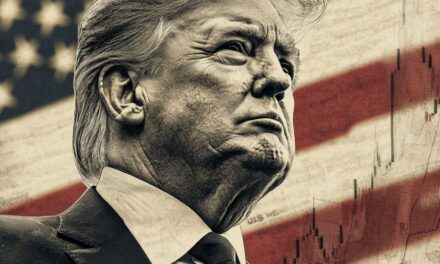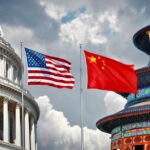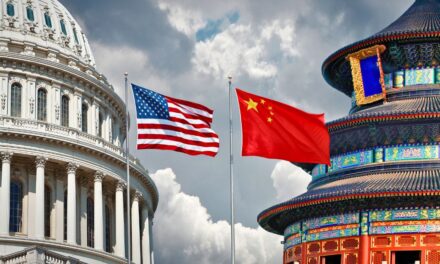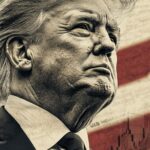
Timeless Investment Lessons from China Evergrande’s Collapse

What does China Evergrande’s liquidation mean for those of us who live outside China, but want to participate in China’s growth? Is it the end? Is there still money to be made? Perhaps it’s a good time to invest?
Before rushing in, or out for that matter, there’s various elements we need to consider here, and these are good, timeless lessons we can draw from this, for anyone who is considering investing in China –
– First, are we as investors protected? This is a liquidation. And liquidations are usually meant to protect firstly the creditors, for instance bondholders, and then eventually, possibly protect the shareholders according to their class, but in this case, will a liquidation actually protect us?
– Then, we consider if the Chinese economic and policy environment stable enough to warrant investors continuing to invest in China?
– Then finally, as foreign investors who might still want to participate in China’s growth, is this a good time to invest, and if so, what’s the best way of investing…
It all sounds like alot, but I promise to break it down for you – and do it simply, so we can all grow our wealth and live our Purpose, Mastery Not Required.
So, if we’ve not met, my name’s Tim Low, former corporate lawyer & founder of Purpostry & Mastery Not Required, and I will help you create multiple income streams using your Purpose instead of Mastery, so that you can live a purposeful, meaningful, life.
Are investors protected?
The Hong Kong Courts have ordered China Evergrande to wind up.
And that sounds straight forward enough, but there’s more to it than meets the eye. While there are issues with different subsidiaries etc, that’s out of the scope of this episode.
What I want to highlight, is something that foreign investors who invest in China, will face, and that could leave us exposed. Because there’s many China companies that are listed on the HK Stock Exchange. Including popular investments like Alibaba, JD, and Nio.
While China and Hong Kong are the same country, under the “one country, 2 systems” principle, they are actually different jurisdictions…
…so think of it as trying to enforce a court order from one state in the US in another state in the US, except, a lot more difficult, because China and Hong Kong are not only different jurisdictions, they’re different Legal Systems altogether!
And typically to enforce an order from out of a jurisdiction, you need to get another court – in jurisdiction – to give an order to enforce that first order.
Different legal systems, are akin to speaking a different language but worse, because the same words could have different meanings.
China is a Civil Law jurisdiction, which is commonly associated with the European legal system, which started with the Romans, but it was really the French to implemented the modern version of this in 1804 with the Napoleonic Code.
Hong Kong on the other hand is a common law jurisdiction, and common law is commonly, no pun intended, associated with the British legal system.
Differences that count in this case, are that in the Chinese Civil Law system, the judges have limited flexibility in interpreting laws, and are bound by statute, whereas the Hong Kong system will take into account statutes as well as previous judgements.
Now, to make things worse, there are also the social and political aspects which China will need to consider, for instance making sure that home buyers from Evergrande are taken care of…
And to make things even more complicated, a lot of Evergrande’s assets are on the Chinese Mainland, and these Mainland assets are already subject to domestic court orders… which begs the question – even after liquidators are able to seize assets in China, how much is left to be distributed? Plus for social stability reasons, homebuyers will likely be compensated, or unit delivery sold to other developers.
As we observed in the beginning, a liquidation is meant to protect firstly the creditors, such as the bondholders, and then eventually, possibly the shareholders, if there are enough assets remaining.
There’s not a lot of precedence we can look at for reference, but after all I’ve pointed out, it’s likely that in the circumstances, there’s not going to be a lot left over for offshore bondholders, and if you’re a shareholder, you’re even further down the list…
Offshore investors not being protected doesn’t bode well for the investing environment…
Is the Investment Environment Stable?
So is the broader Chinese economic and policy environment stable enough to warrant investors considering China or continuing to invest in China?
We’ll get into that in a second, but before that, I’d love to know, so tell me in the comments – do you invest in China, and are you going to continue investing in China after this? And if you’re getting value from this, hit that like, and subscribe for more breakdowns like this, so that together, we can grow our wealth and live our purpose, mastery not required.
Well, Evergrande was once the pride of the Chinese real estate industry, until it started defaulting on its debt 2 years ago. Then Evergrande became the world’s most heavily indebted property developer, racking up debt of over $328 Billion as of Q3 2023. And for perspective, that’s more than 2% of China’s GDP. So it’s big, and it’s been in the news.
So, in terms of overall market volatility, none of this is new, and a lot Evergrande’s impact has probably already been priced into the broader market. Now, there’s very likely going to be further impact on the property sector, and in particular the other troubled developers.
But it’s not just the size of Evergrande’s debt, that’s worrying, but the financial maneuvering, political dynamics within the company, dynamics with regulators, etc. that could cause further instability in for those of us who invest in China.
For instance, if that causes a need regulate further, or implement policies, than that points to further risk for investors.
And investors look at stuff like that, cos we always teach our students that a good investment is always about managing risk first, and if we can’t manage our risk first, we shouldn’t be investing. Cos without managing risk, it’s really not an investment, it’s a punt.
And it’s not just little ole me that says that, that’s clearly what the big boys are thinking as well.
China already posted a deficit for Foreign Direct Investments last year, its first ever quarterly deficit, meaning foreign investors have started taking money out of China.
And if the big boys are thinking that, usually portfolio and retail investors follow soon after.
That said, all is not lost. China can reverse the investment outflow sentiment, if it handles this well. In this episode, we’ve highlighted a lot that can adversely affect investors. That’s what we see when we try to manage risk. But if China can pull a rabbit out of the hat, and show investors that they are taken care of, or at least give investors some form of certainty, because that’s what investors crave, than that could work nicely to stem outflows, and possibly even reverse the flow of investments, attracting investments back into China.
So, as foreign investors who might still want to participate in China’s growth, is this a good time to invest, or is it time to bail?
And if we’re investing, what’s the best way to invest in China now?
Well, I’ll tell you what I think in a moment, but before that, I want to give you a gift… It’s a 4 day Lifestyle Income Workshop, it’s an on demand video workshop which I want to give to you – absolutely free, as my gift to you for hanging out with me on this video.
You’ll be learning why trying to master your income streams has caused passive income to elude you all these years, and what you can do about it; what the wealthiest people and most profitable companies use to remain profitable and grow their wealth and income in a risk managed and sustainable way; and finally, why most stumble when trying to grow their income and wealth, and how you can avoid those pitfalls, so that you can start taking concrete steps to building your income streams, and living your purpose instead of going one step forward and 2 steps back all the time…
I pull back the curtain on what I do for passive income, mastery not required, and introduce you to some of my favorite passive income streams that I’m using right now, that are putting money in my pocket even as you’re enjoying this episode.
All you need to do, is to head over to start.purpostry.com/workshop, which is on the screen now if you’re watching on Youtube, and in the description of this video or podcast. Just put in your email address and my team will send the 4 videos to you, right to your inbox. You can watch it anytime you want, and it’s fast and actionable, so pay attention and take action. Whether you’re a beginner who hasn’t the faintest idea where to start, or you’ve got income streams, but they’re causing you stress and taking all your time, so you can’t live your purpose, this on demand workshop series will change your life. It’s completely free as my gift to you, now back to the episode.
So, as foreign investors – do we stay or do we go?
Again, there are a few elements that we need to consider.
First, your Purpose.
At Purpostry, we teach our students that every decision they make, especially financial decisions, must be a good decision that advances their Purpose in Life. Otherwise, it’ll be stressful, and even if they benefit financially, it’s not going to be fulfilling. And I don’t know you. So, everything I say here is just my opinion. I’m not a financial adviser, and this certainly isn’t advice or any form. So, before you make any financial decision, do your own due diligence, and consider your own situation. Because everyone is different, and everyone’s got a different purpose and different investment goals.
Now, if it fits your investment goals and advances your life’s purpose, then you need to consider the risk.
Investing in China comes with a lot of political and policy risk. For instance, China’s Zero Covid policy that slowed down it’s reopening compared to the rest of the world, or its crackdown on the tech sector affecting tech giants like Alibaba or Tencent. Unless you’re a China investor you might not know about China’s crackdown on the after school tutoring sector, so companies like New Orient Education (or EDU) and TAL Education crashed 80-90%. Incidentally, both of these are listed in Hong Kong and the NYSE. Or the crackdown on Student Online Gaming which restricted how much time and when students can play games, which affected popular China investments like Tencent and Netease. And of course the tightening of regulations and financial constraints that led to the real estate slowdown.
So, as you can see, there is a lot of policy risk in investing in China.
After considering the broader policy risks, you need to consider the risk of the specific investment.
For instance in Evergrande’s case an investor would have seen the red flags emerging years ago, from having such high debt, weak home sales, etc. But some of the other financial maneuvering might have been harder to spot. That said, financial maneuvering happens everywhere, for instance in Enron. And that’s why it’s so important to take a portfolio approach.
You see, some of our students still want some exposure to China’s growth. In fact, I was just sent a message from one of my private students just yesterday, saying that he smells “blood on the streets” – referencing the quote often attributed to Nathan Rothschild… meaning it’s time to consider buying.
And he makes a point – Be greedy when others are fearful, and all that.
And so, if it fits your purpose, if you’ve considered the risk, the fundamentals, if you are a contrarian and bullish, then finally, I would say consider how it fits in your portfolio and don’t overextend yourself. We generally tell our students not to hold more than 10% or as an absolute MAX, 20% in China. And while I do hold individual Chinese companies as well as ETFs, if you want broad exposure to China, especially if you’re not a seasoned China investor, then consider ETFs like Vanguard’s CHNA fund, or you can even get access to A-shares which are Mainland companies traded on Shanghai and Shenzhen stock exchanges, rather than the ADRs, through broad based funds like ASHR, or if you want broad exposure to the Chinese internet companies then there’s funds like KWEB.
The point of any investment, is to help us live a better quality of life, and to learn to do that, you need to watch this video, and don’t forget to like and subscribe, and watch this other video where we discuss how to grow wealth and income through owing good assets…























Recent Comments